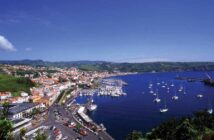
By Máire Ní Mhurchú, CEO, Irish Self-Catering Federation (ISCF)
Ireland’s housing crisis is real and urgent. But blaming family run rural self-catering businesses for it and proposing to force them into the long-term rental market, is not just misleading by the Government, it is reckless. Tourism is Ireland’s largest indigenous industry, worth billions annually to the national economy and it sustains towns and villages across the country. Yet one of its most important pillars, the self-catering sector, is now being unfairly scapegoated as a cause of our housing shortage by our elected TDs and Government ministers.
Government proposals would require all short-term rentals (STRs) to obtain planning permission, particularly in towns with populations over 10,000. If enacted, this policy risks dismantling the sector entirely. It would force thousands of legitimate, family-run businesses to shut down, undermine rural economies, and wipe out up to €3.5 billion in tourism revenue along the Wild Atlantic Way alone.
At the Irish Self-Catering Federation (ISCF), we represent approximately 7,500 self-catering properties nationwide, from individual cottages to small agencies. Our members are not large-scale landlords or speculative investors. They are typically rural property owners, mostly women over 45, running family businesses that sustain local economies.
Independent analysis by economist Jim Power confirms the importance of the sector. His report “The Economic Importance of Ireland’s Self-Catering Sector” commissioned by the Irish Self-Catering Federation, published earlier this year, highlights that:
- 40pc of all Irish tourism beds are provided by self-catering.
- For every €25 spent on accommodation, an additional €75 is spent locally – a 3:1 multiplier effect.
- The Wild Atlantic Way, generating €7 billion annually, depends heavily on self-catering. Removing this capacity could cut that value in half.
- The sector includes micro-operators – often single households or farms – who would not survive under a planning regime designed for urban housing markets.
Meanwhile, more than 21,800 properties are already tied up in the Government’s Accommodation Recognition Payment (ARP) scheme, housing almost 40,000 people – the majority of which previously operated in the STR market. Those homes are gone. Yet rural family businesses continue to be scapegoated.
NOT an urban issue
The ESRI has confirmed that STRs are not concentrated in Dublin or other urban centres under housing pressure, but overwhelmingly in rural and tourist areas. Many are seasonal homes, purpose-built cottages, or second homes that were never part of the long-term rental supply in the first place.
A properly designed STR Register will give Government accurate data on the true number of self-catering homes in Ireland – something that has been lacking for decades.
For the Government to proceed with blanket planning restrictions is to ignore the data, the evidence, and the human cost. Behind the statistics are families and communities already feeling the strain. Across Ireland self-catering owners are grappling with uncertainty about their livelihoods – and the ripple effects go far beyond their own front doors.
Mark Gannon, owner of Atlantic Whale & Wildlife Tours, has seen his village of Courtmacsherry in West Corkhollowed out as STR homes were lost to long-term rental under Rent Pressure Zone (RPZ) rules. “The short-term rental stock in Courtmacsherry has all but vanished,” he says. “Visitors who once stayed here can’t find accommodation, so they bypass us altogether. It’s not just my tours that suffer – it’s the pubs, the cafés, the shops. The whole local economy feels it.” He has already moved one of his boats to Kinsale just to keep trading.
Yvonne Flaherty of Connemara Holiday Lettings employs five staff. Most of the homes she manages are second homes. “Without self-catering,” she explains, “these houses would be locked up for most of the year. Instead, they generate business for restaurants, shops, taxis and activity providers throughout Connemara. Self-catering isn’t taking hopes out of the long-term market here, it’s keeping seasonal homes in use, creating jobs and spreading income across the economy.”
Even if operators try to comply with planning, the proposals are unworkable. More than 30,000 planning applications would be required nationwide, in a system already short 540 planners. Families would be left in limbo, unable to trade until approved, with no certainty of outcome.
Forces every operator through planning
The Department of Housing suggests a “decoupling” of STR rules from Rent Pressure Zone legislation, but the current draft still forces every operator through planning by April 2026. The draft bill also proposes to exclude towns with strong tourism profiles – such as Tramore, Ballina, and Killarney – simply because their populations exceed 10,000. To treat Ballina with a population of 10,087 the same as Barcelona with a population of 1.6 million is absurd.
Meanwhile, a significant number of “ghost” STRs remain in the system – properties with historic permissions that are now second homes, long-term rentals, or under Government contract. These distort the figures, making it appear that more tourism supply exists than is the case, while genuine operators are penalised.
The proposed restrictions will not only damage rural economies – they will also drive-up prices for visitors. Minister for Enterprise, Tourism and Employment Peter Burke has already expressed concern about the high cost of hotel rooms. If STRs in towns with more than 10,000 residents are wiped out, hotel demand will rise even further, and prices will follow. That makes Ireland less competitive as a destination, undermining the very tourism strategy Government says it wants to protect.
We, the ISCF, are calling for targeted exemptions. For long-established, quality-assured properties, we are looking for an exemption from planning. For small-scale, family-run and farm diversification businesses or for properties with four bedrooms or fewer, we ask that they are treated the same as B&Bs. For regenerative tourism projects and those in operation for three or more years, we ask that they are protected under a grandfather rule for exemption.
NOT speculative urban development
These measures recognise reality: self-catering is not speculative urban development; it is often the only form of visitor accommodation in rural Ireland.
Each year, Fáilte Ireland invests millions in attractions, greenways, and festivals. But without beds, those investments are meaningless. Tourism without accommodation is tourism in name only.
The choice now facing family run tourism businesses in rural Ireland is stark. The ISCF is calling on Government to work with us to design balanced, data-driven planning guidelines that protect both housing needs and rural tourism. The alternative is to proceed with legislation that will hollow out villages, close family businesses, and sacrifice up to half of the tourism value along the Wild Atlantic Way.
The self-catering sector is not the cause of the housing crisis. But without it, rural Ireland risks losing its future in tourism. It is time to stop scapegoating self-catering and start working together on solutions that sustain both housing and tourism. Rural Ireland deserves nothing less.




